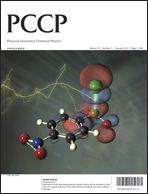Developing a Biosensing Prototype Utilising 7CB Liquid Crystal for Human Insulin Detection
IF 2.9
3区 化学
Q3 CHEMISTRY, PHYSICAL
引用次数: 0
Abstract
This paper presents a novel prototype for human insulin detection using 4-heptyl-4-biphenylcarbonitrile liquid crystal (7CB-LC). Human insulin is essential for regulating blood glucose levels and facilitating the metabolism of carbohydrates, lipids, and proteins. Insufficient insulin can lead to hyperglycemia, where cells cannot utilise glucose effectively for energy production. Prolonged hyperglycemia can affect the nervous and cardiovascular systems. Our work investigates the scope of using 7CB-LC as a prototype for the label-free detection of human insulin. Both temperature and the time-dependent study conducted using the polarising optical microscope (POM) for concentrations ranging from 25 μM to 500 μM of human insulin showed that human insulin interacting with 7CB-LC produces radial, twisted-radial, pre-radial and bipolar textures. A detection limit of 25 μM was observed since no distinguishable textures were observed below this concentration. The RGB and grey index study showed a positive correlation graph with an R2 value of 0.97279, proving the selectivity of the proposed biosensor. Molecular docking and Raman spectroscopy were conducted to learn more about the interaction between insulin and 7CB-LC at the molecular level. Docking studies revealed how the position of the 7CB core and tail ends interacted with amino acid residues of insulin. Raman spectroscopy studies investigated the segmental mobility of different parts of LC and changes occurring in the core and terminal regions due to insulin interaction. Vibrational studies conducted using Raman spectroscopy analysed the change in 7CB-LC parameters such as peak position (PP), line width (LW) and integrated intensity (II) on interacting with human insulin. This unique prototype technique shows how 7CB-LC can potentially be employed in biosensing to detect human insulin since it provides better visualisation in a label-free detection method.利用 7CB 液晶开发用于人体胰岛素检测的生物传感原型
本文介绍了一种利用 4-庚基-4-联苯甲腈液晶(7CB-LC)检测人胰岛素的新型原型。人胰岛素对调节血糖水平和促进碳水化合物、脂类和蛋白质的新陈代谢至关重要。胰岛素不足会导致高血糖,细胞无法有效利用葡萄糖产生能量。长期高血糖会影响神经和心血管系统。我们的工作研究了使用 7CB-LC 作为原型对人体胰岛素进行无标记检测的范围。使用偏振光学显微镜(POM)对浓度从 25 μM 到 500 μM 的人胰岛素进行的温度和时间依赖性研究表明,人胰岛素与 7CB-LC 相互作用会产生径向、扭曲径向、前径向和双极纹理。检测极限为 25 μM,因为在此浓度以下没有观察到可分辨的纹理。RGB 和灰度指数研究显示出 R2 值为 0.97279 的正相关图,证明了所提出的生物传感器的选择性。为了进一步了解胰岛素和 7CB-LC 在分子水平上的相互作用,我们进行了分子对接和拉曼光谱研究。对接研究揭示了 7CB 核心和尾端的位置如何与胰岛素的氨基酸残基相互作用。拉曼光谱研究调查了 LC 不同部分的分段流动性以及核心和末端区域因胰岛素相互作用而发生的变化。利用拉曼光谱进行的振动研究分析了 7CB-LC 与人胰岛素相互作用时峰位(PP)、线宽(LW)和综合强度(II)等参数的变化。这种独特的原型技术显示了 7CB-LC 在生物传感中检测人胰岛素的潜在应用,因为它在无标记检测方法中提供了更好的可视化效果。
本文章由计算机程序翻译,如有差异,请以英文原文为准。
求助全文
约1分钟内获得全文
求助全文
来源期刊

Physical Chemistry Chemical Physics
化学-物理:原子、分子和化学物理
CiteScore
5.50
自引率
9.10%
发文量
2675
审稿时长
2.0 months
期刊介绍:
Physical Chemistry Chemical Physics (PCCP) is an international journal co-owned by 19 physical chemistry and physics societies from around the world. This journal publishes original, cutting-edge research in physical chemistry, chemical physics and biophysical chemistry. To be suitable for publication in PCCP, articles must include significant innovation and/or insight into physical chemistry; this is the most important criterion that reviewers and Editors will judge against when evaluating submissions.
The journal has a broad scope and welcomes contributions spanning experiment, theory, computation and data science. Topical coverage includes spectroscopy, dynamics, kinetics, statistical mechanics, thermodynamics, electrochemistry, catalysis, surface science, quantum mechanics, quantum computing and machine learning. Interdisciplinary research areas such as polymers and soft matter, materials, nanoscience, energy, surfaces/interfaces, and biophysical chemistry are welcomed if they demonstrate significant innovation and/or insight into physical chemistry. Joined experimental/theoretical studies are particularly appreciated when complementary and based on up-to-date approaches.
 求助内容:
求助内容: 应助结果提醒方式:
应助结果提醒方式:


